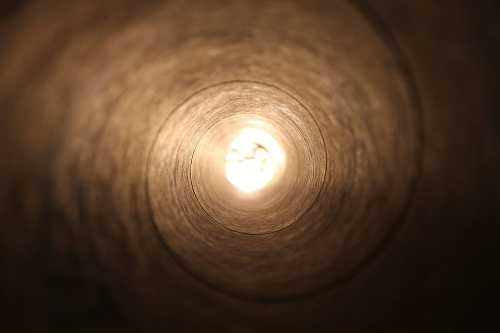Scientists At German Research Centre Develop Novel Scanning Tunnelling Microscope With Magnetic Cooling To Study Quantum Effects
Curated from: thequantumdaily.com
1
Explore the World's Best Ideas
Join today and uncover 100+ curated journeys from 50+ topics. Unlock access to our mobile app with extensive features.
FORSCHUNGSZENTRUM JUELICH NEWS RELEASE — Scanning tunnelling microscopes capture images of materials with atomic precision and can be used to manipulate individual molecules or atoms. Researchers have been using the instruments for many years to explore the world of nanoscopic phenomena. A new approach is now creating new possibilities for using the devices to study quantum effects.
3
26 reads
New Approach
Scanning tunnelling microscopes capture images of materials with atomic precision and can be used to manipulate individual molecules or atoms.
Thanks to magnetic cooling, their scanning tunnelling microscope works without any moving parts and is almost vibration-free at extremely low temperatures as low as 30 millikelvins.
3
9 reads
FORSCHUNGSZENTRUM JUELICH NEWS RELEASE — Scanning tunnelling microscopes capture images of materials with atomic precision and can be used to manipulate individual molecules or atoms. Researchers have been using the instruments for many years to explore the world of nanoscopic phenomena. A new approach is now creating new possibilities for using the devices to study quantum effects.
3
8 reads
Physicists consider the temperature range near absolute zero to be a particularly exciting area for research. Thermal fluctuations are reduced to a minimum. The laws of quantum physics come into play and reveal special properties of materials. Electric current then flows freely without any resistance.
Another example is a phenomenon called superfluidity: Individual atoms fuse into a collective state and move past each other without friction.
These extremely low temperatures are also required to research and harness quantum effects for quantum computing
4
8 reads
Versatility
it enables matter to be visualized and manipulated at the level of individual atoms and molecules in many different ways.
“Our new microscope differs from all the others in a similar way to how an electric car differs from a vehicle with a combustion engine."
Until now, researchers have relied on a kind of liquid fuel, a mixture of two helium isotopes, to bring microscopes to such low temperatures. “During operation, this cooling mixture circulates continuously through thin pipes, which leads to increased background noise,”
3
4 reads
FORSCHUNGSZENTRUM JUELICH NEWS RELEASE — Scanning tunnelling microscopes capture images of materials with atomic precision and can be used to manipulate individual molecules or atoms. Researchers have been using the instruments for many years to explore the world of nanoscopic phenomena. A new approach is now creating new possibilities for using the devices to study quantum effects.
3
2 reads
adiabatic demagnetization
The cooling device of Jülich’s microscope is based on the process of adiabatic demagnetization.
It was used in the 1930s to reach temperatures below 1 kelvin in the laboratory for the first time. For the operation of microscopes, it has several advantages
- can cool the microscope just by changing the strength of the electric current passing through an electromagnetic coil.
- Thus, the microscope has no moving parts and is practically vibration-free
3
3 reads
The Jülich scientists are the first ever to have constructed a scanning tunnelling microscope using this technique. “The new cooling technology has several practical advantages. Not only does it improve the imaging quality, but the operation of the whole instrument and the entire setup are simplified,” says institute director Stefan Tautz . Thanks to its modular design, the Jülich quantum microscope also remains open to technical advances, he adds, as upgrades can be easily implemented.
3
2 reads
FORSCHUNGSZENTRUM JUELICH NEWS RELEASE — Scanning tunnelling microscopes capture images of materials with atomic precision and can be used to manipulate individual molecules or atoms. Researchers have been using the instruments for many years to explore the world of nanoscopic phenomena. A new approach is now creating new possibilities for using the devices to study quantum effects.
3
0 reads
“Adiabatic cooling is a real quantum leap for scanning tunnelling microscopy. The advantages are so significant that we are now developing a commercial prototype as our next step,” Stefan Tautz explains. Quantum technologies are currently the focus of much research. The interest of many research groups in such an instrument is therefore assured.
3
0 reads
IDEAS CURATED BY
Decebal Dobrica's ideas are part of this journey:
Learn more about scienceandnature with this collection
Basic survival skills
How to prioritize needs in survival situations
How to adapt to extreme situations
Related collections
Similar ideas
15 ideas
13 Quantum Computing Companies Working With Superconducting Technology
thequantuminsider.com
6 ideas
Quantum physics
newscientist.com
Read & Learn
20x Faster
without
deepstash
with
deepstash
with
deepstash
Personalized microlearning
—
100+ Learning Journeys
—
Access to 200,000+ ideas
—
Access to the mobile app
—
Unlimited idea saving
—
—
Unlimited history
—
—
Unlimited listening to ideas
—
—
Downloading & offline access
—
—
Supercharge your mind with one idea per day
Enter your email and spend 1 minute every day to learn something new.
I agree to receive email updates

